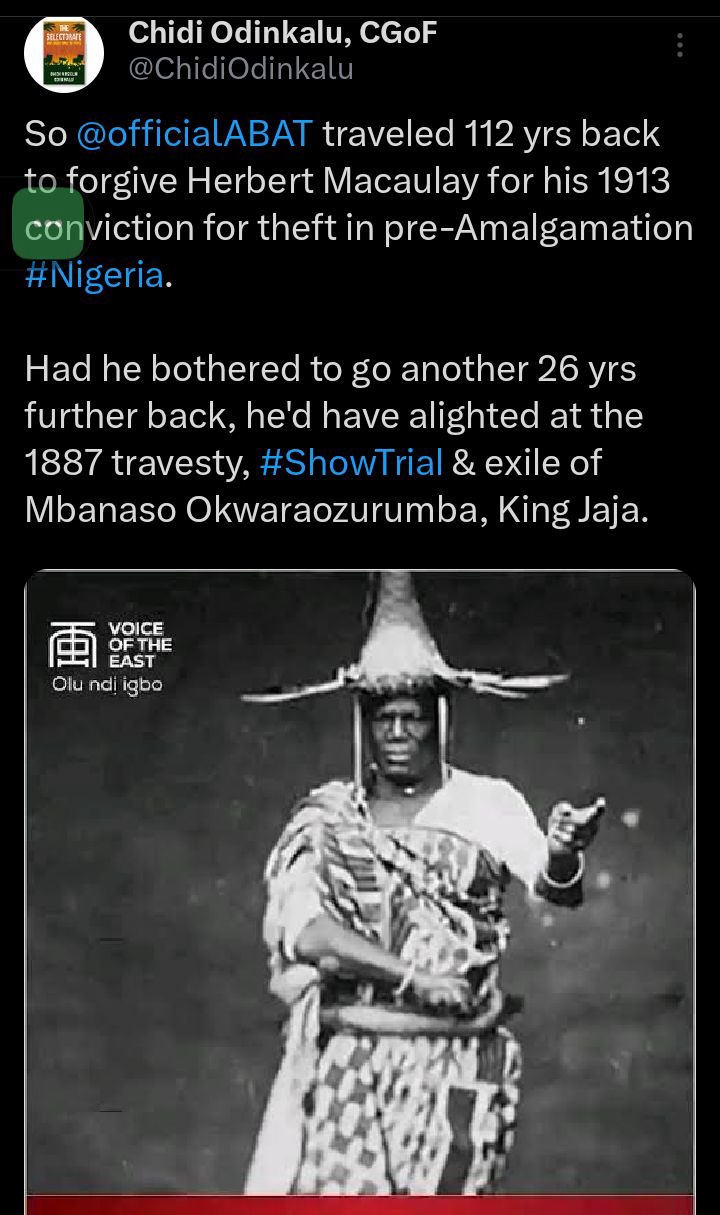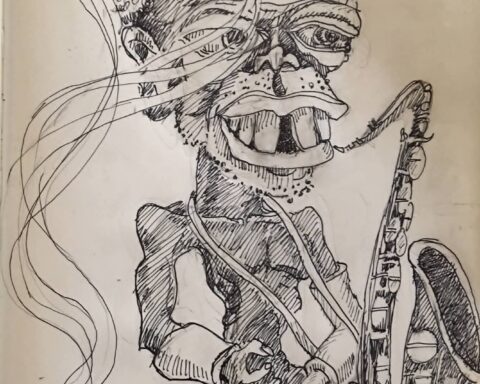The pardon, announced on October 10, 2025, covers 175 individuals, including 82 inmates granted full clemency, 65 with reduced sentences, and seven with commuted death penalties.

This move, rooted in the Advisory Committee on the Prerogative of Mercy’s recommendations, aims to address colonial-era injustices, with Macaulay—a key nationalist figure—among the beneficiaries.Odinkalu, however, questions the decision’s scope, suggesting it overlooks earlier historical grievances.
Here Is What He Wrote On His Official X Handle

He points to the 1887 exile of King Jaja of Opobo, an Igbo leader who rose from slavery to challenge British trade dominance, only to face a “show trial” and deportation to the West Indies.
Jaja’s case, predating Macaulay’s by 26 years, symbolizes unaddressed imperial legacies.
The pardon reflects a broader effort to reconcile Nigeria’s colonial past, with officials citing remorse and good conduct as criteria.
Yet, the selective focus on Macaulay has prompted calls for a more comprehensive review of historical injustices, highlighting ongoing debates about how Nigeria addresses its complex history.


























